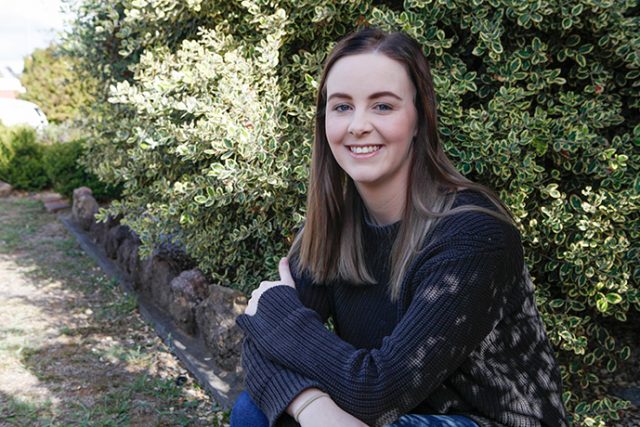Severe abdominal and pelvic pain, throwing up, fainting and being forced to stay in bed – these are just some of the daily struggles Alicia Ferguson has lived with for 10 years.
The St Clair resident is one of 176 million women worldwide living with endometriosis, a lesser understood disease where a tissue similar to the one found in a uterus grows on the outside of the uterus wall causing severe pain, and in some cases infertility.
Officially diagnosed in 2014, Ms Ferguson has had two surgeries to remove the disease.
“It’s hard because some days you don’t have pain and you can walk around like a normal person and then other times you can barely move, you can’t leave home, you miss work and uni,” she said.
With one in 10 women in Australia suffering from endometriosis, the estimated delay in diagnosis is between seven and 10 years.
The reason for the delay, according to Endometriosis Australia, is due to girls, women and even doctors normalising symptoms of endometriosis.
It’s something Ms Ferguson said she was all too familiar with.
“That’s the part that is frustrating when people think that I’m just having a whinge about general period pain,” she said.
“I’ve always kind of felt like I’ve had to suck it up and just deal with it because it’s just meant to be a normal part of being a girl, but it’s not always normal.”
Working as a nurse, Ms Ferguson said she has found it a lot easier to talk about her condition and she hopes more women and young girls would one day be able to do the same.
“I think for most people and even me before becoming a nurse and being younger, it was harder for me to talk about because it was already hard enough going through puberty and getting your period as a young person,” she said.
With Australia’s first $2.5 million national endometriosis plan set to be released in July, education and awareness will be one of the key issues addressed.
“It’s important to know that you’re not the only one going through it,” Ms Ferguson said.
“I feel like if there is more awareness about it, people will be less scared to speak up and go to their doctors and say ‘I think there is something more going on here’.”
Lauren Suttie
Lauren Suttie is the Weekender's General & Community News journalist.

